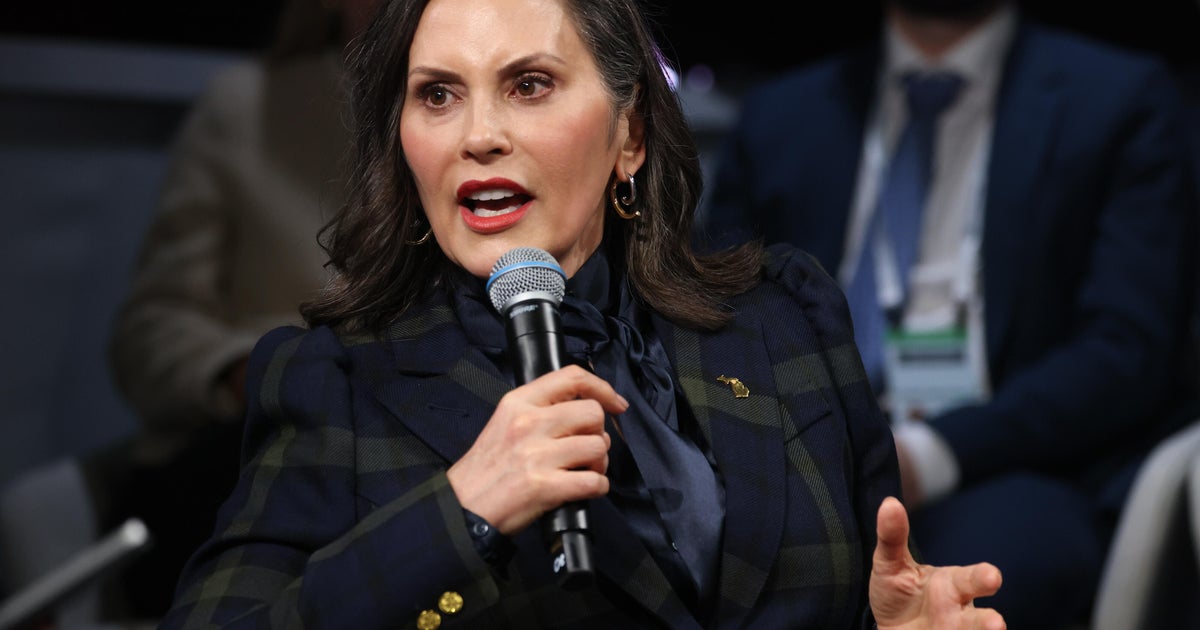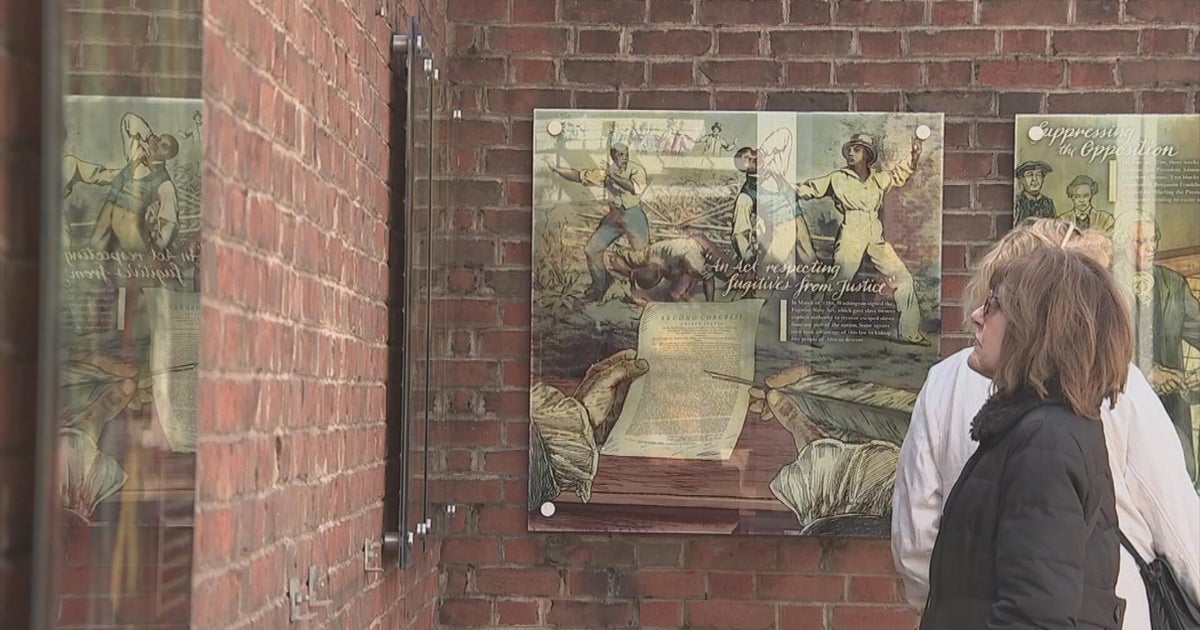Full transcript: Representative Adam Schiff on "Face the Nation," January 2, 2022
The following is the full transcript of an interview with Representative Adam Schiff that aired Sunday, January 2, 2022, on "Face the Nation."
MARGARET BRENNAN: We go now to a Democrat on that Jan. 6 committee, House Intelligence Committee Chairman Adam Schiff. He wears both hats, good morning to you, congressman.
REP. ADAM SCHIFF: Good morning.
MARGARET BRENNAN: When will you begin public hearings and what is the purpose of them?
REP. SCHIFF: We should begin them, I hope, in a matter of weeks, if not a couple of months from now. And what we expect to do is lay out what we've been learning for the American people. There were several lines of effort to overturn the election. There was, of course, the lies being promulgated by the former president, but also efforts with local elections officials and state legislators, efforts at the Justice Department and of course, the violent attack on Jan. 6. And we hope to be able to tell the story to the country so that they understand it isn't just about that one day, Jan. 6, but all that led up to it. What happened on that day and the continuing danger going forward?
MARGARET BRENNAN: So, exactly what degree of coordination have you seen so far, particularly between those within the Trump White House political operatives and the 725 people that the- that have been charged by the Justice Department?
REP. SCHIFF: Well, this is really a focal point of our investigation, and that is what was the role of the former president, what was the role of his aides and advisors? Certainly, they were integrally involved in many of those lines of effort. In terms of the actual violent attack on the Capitol, how much expectation of violence was there? How much was that part of the plan, either spontaneously or in terms of any predisposition towards violence that day? That is still a matter under deep investigation. But we intend to use every effort to get out the full facts and expose them to the American people and take legislative action to protect the country going forward. But that issue, that is what was the White House role in what happened on the 6th that led to the first violent attack in a century and a half, if not longer, is at the core of our investigation.
MARGARET BRENNAN: Because you have oversight in your intelligence committee role. I want to know to what degree you think this was an intelligence failure. Was there just a failure of imagination in terms of too much focus on militias and organized groups versus sort of a diffused threat of political violence? Why was this missed?
REP. SCHIFF: You know, I think that, in part, is an intelligence failure that is the failure to see all the evidence that was out there to be seen of the propensity for violence that day, a lot of it on social media. Now there are answers for why the FBI and the Department of Homeland Security failed to see it as clearly as they should have and we're looking into that. But we shouldn't be distracted from the fact that, yes, while there were things that could and should have been done to protect the Capitol that day, the primary lever, instrument, the cause of that violence was the promulgation of a big lie by the former president, as- as his supporters said, who came and attacked the Capitol that day; they felt like they were following the president's instructions. So, it's important to lose- that we don't lose sight of the real motivating cause here and not just focus on the security of the building. It's also vital we understand that this was an attack inspired by the commander in chief.
MARGARET BRENNAN: This is going to go to the Supreme Court in terms of determining whether some of the records in the Trump administration will be released to your committee, if there is a lengthy delay, if the Supreme Court hears this out, how negatively will that impact your work? I mean, how badly do you need those documents?
REP. SCHIFF: Well, we have gotten tens of thousands of documents and had hundreds of witnesses, so we're trying to get information in various means and form so that we're not solely dependent on that litigation. But of course, it's the hope of Donald Trump and his acolytes that they can delay until they can deny justice. I don't think they'll be successful. I think the court understands and the courts have been moving with great alacrity. That really delay is the strategy. It's not about the merits of litigation so much as it is depriving Congress of the American people of information they believe; I assume would be incriminating to them. But when it does go before the Supreme Court, we will get a sense of whether that court is a conservative court or whether it has become just a partisan court. If it's a conservative court, it will not disturb the decisions below, which I think have clearly held that Congress has a right to this information under these circumstances. You have the executive branch represented by Joe Biden and the legislative branch in court. It would be extraordinary for the judicial branch to differ with both other branches of government.
MARGARET BRENNAN: In your intel committee role, I want to ask you about Russia. What specifically would stop Vladimir Putin from his aggression? Do you need to cut that country off from the global financial system to sanction him personally?
REP. SCHIFF: Well, I think that it would require enormous sanctions on Russia to deter what appears to be a very likely Russian invasion of Ukraine again. And- and I think our allies need to be solidly on board with it. Russia needs to understand we are united in this. I also think that a powerful deterrent is the understanding that if they do invade, it is going to bring NATO's closer to Russia, not push it farther away. That we will move more NATO's assets closer to Russia. That it will have the opposite impact of what Putin is trying to achieve. So, the combination, I think of very strong sanctions, and I certainly have no problem going after Putin personally, but I think more the- the sector sized sanctions will be the most important. But- but beyond that, the knowledge that in fact, we will move more NATO's assets closer to Russia, not further away if they once again bring war to Ukraine.
MARGARET BRENNAN: Very quickly, do you fear these diplomatic talks are just building a pretext for Russia to say they have no choice but to invade?
REP. SCHIFF: I fear that Putin is very likely to invade. I still frankly don't understand the full motivation for why- why now he's doing this, but he certainly appears intent on it unless we can persuade him otherwise. And I think nothing other than a level of sanctions that Russia has never seen will deter him, and that's exactly what we need to do with our allies.
MARGARET BRENNAN: All right, Congressman Schiff, thank you for your time. We'll be right back.



